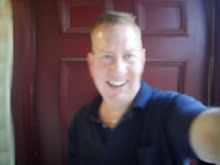Et In Arcadia Ego
 As a child, or an adult, living in America, you seek salvation for the personal sins you have committed. The subject is the person who is the son of so and so, lives on such and such street, and does such things that are wrong. And surely, you have done many wrong things which require redemption. But, living in America, as you grow older and realize though your sins may be forgiven, your guilt still lingers, and you first encounter a mystery. From whence this guilt? You are urged to take a personal inventory. Do you lust? Do you covet? And you fall into a pattern of requiring forgiveness over and over again for the same sins that were driven out before. But even when your personal inventory is 'clear', there is a gnawing, and an everpresent guilt that will not pass, no matter how much prayer is given up that the cross will be laid aside and all will be made well.
As a child, or an adult, living in America, you seek salvation for the personal sins you have committed. The subject is the person who is the son of so and so, lives on such and such street, and does such things that are wrong. And surely, you have done many wrong things which require redemption. But, living in America, as you grow older and realize though your sins may be forgiven, your guilt still lingers, and you first encounter a mystery. From whence this guilt? You are urged to take a personal inventory. Do you lust? Do you covet? And you fall into a pattern of requiring forgiveness over and over again for the same sins that were driven out before. But even when your personal inventory is 'clear', there is a gnawing, and an everpresent guilt that will not pass, no matter how much prayer is given up that the cross will be laid aside and all will be made well.As an adult, you can have a crisis that comes out of nowhere that causes a suffering in you, that in your wildest dreams, you never could have imagined. This, then, you can realize is the suffering common to mankind. This worst suffering is what unites you to your fellow man. In this uniting, the soul begins to remember. It remembers, slowly, painfully, that it is ancient, connected to all life, and for lack of a better word, is pagan. So now, through recognition of the soul's vastness and archaic-ness, you can realize there are many sins for which you have not asked fogiveness, by virtue of being human and most, one of an ancient society of men. The soul remembers. It has sacrificed innocent victims, human and animal for it's own perpetuation. It has harmed many. It has been prideful, arrogant, self centered, crushing anything, including prophets and messiahs, that has stood in the way of it's own expression.
Suddenly, historical personages can come to mind. Nero. Mussolini. The Borgias. Hitler. Hussein. And you can realize, not only am I no better than these, but I, by virtue of being human, and connected to these through suffering, am these people. The weight of guilt, sociological guilt, communal guilt, comes to bear and you realize those sins for which you have not asked forgiveness.
The spirit has thrown light on the soul, this vast, oceanic, connected soul that participates in the experience of all mankind, being blessed and cursed with good deeds and deep sins. This then, is the old testament notion of 'sins of the fathers'. We enjoy the benefits of being born to nuclear families and being a member of the families of humanity at large, but suffer the sins of said families by virtue of our birth.
When this last vestige of the soul has been come to light, that sociological self that participates in history, and through memory is brought to bear in need of forgiveness, the light pours in and a weight is lifted for sins that were committed by virtue of proximity. This last darkness, brought to light, and remembered, is redeemed along with the internal pagan, christian landscape it inhabits.
This redeemed inner wilderness then becomes paradise. From darkness to light, the sun once again takes it's place in the interior landscape, and you can operate once again except now from a new, integrated, wholly redeemed self.
This is the garden of Eden. Paradise. Arcadia, though it be but a shadow world of that former and future kingdom we eventually will reach once again and then.





